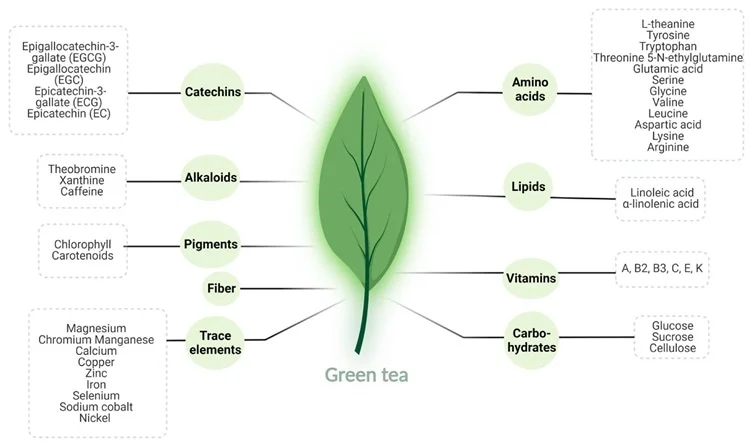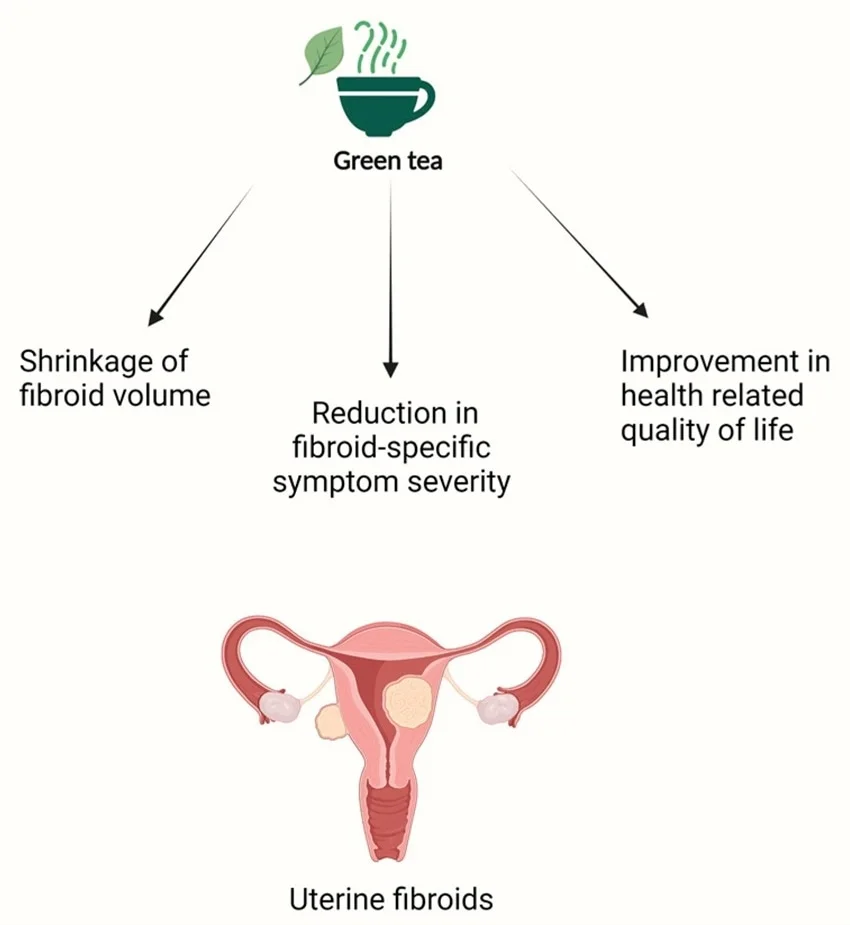Is there a woman in your life around 35 or over? Or do you fit that category? If so, there is a 70% likelihood that you or she may have fibroids, and of that 70%, half of those aged 35-49 have fibroids so bad that their quality of life is severely affected. All is not lost though, recent medical research suggests there is hope on the horizon for fibroid sufferers in the form of matcha green tea’s EGCG catechin. Did you know uterine fibroids can grow as large as 8 inches? About the size of a cantaloupe!

Caring for Our Customers
Our My Matcha Life® data shows that 72% of our customers are women over 40. They are also active, health-conscious, and keen to live their best lives. However, in recent years, several of our customers and friends have or have had issues with uterine fibroids. So, when we recently discovered new information on how matcha’s EGCG (epigallocatechin gallate) may play a role in reducing fibroid size over a relatively short period – we had to investigate. What we found was amazing! Recent research indicates matcha’s EGCG catechin antioxidant is once again a superstar!
…and Studies Show
There is substantial research on matcha green tea’s EGCG catechins and fibroids, and we have listed a few studies at the end of this blog for you, but one study stood out among the rest because of its surprising results.

An International Journal of Women’s Health study in 2013 focused on women of childbearing age who had fibroids greater than 3 cm (a little over an inch) and were experiencing some level of discomfort. Half were given a placebo, and the other half were given daily doses of green tea extract that was 45% EGCG, equal to 360mg of EGCG. After four months, the control group had an average overall reduction in the size of their fibroids of 33%. The placebo group had a size increase of 24%. That’s a 57% difference! The study also found the control group’s symptom severity was reduced by 32%.
Other fibroid studies using EGCG have also recorded positive results and a number of them also suggest adding green tea and Vitamin D.
We are big believers in getting your nutrition in whole food form where you can, so using matcha as a source of EGCG (matcha and green tea are its best sources) is our first choice.

EGCG in My Matcha Life® Products
An FYI – all our matcha powder has similar amounts of EGCG, about 72 mg per gram. For matcha, 1 gram of powder is equal to ½ tsp. FDA recommends 210 mg per day as an upper limit of EGCG, so about 3 cups of matcha.
The USA Fibroid Center suggests that the best foods for reducing fibroids are fresh or lightly cooked veggies, especially spinach, broccoli, and lettuce. Colored fruits, beans and legumes, oily fish, lean white meats, Vitamin D-rich foods, potassium-rich foods and of course…. GREEN TEA.
Foods to avoid when you do have a uterine fibroid tumor they say include: red meats, fatty processed meats, highly processed foods, added sugar, salt, high sodium foods, sugar and sugary drinks, and avoid eating excess calories.
New Ways to Enjoy Matcha!
We recommend visiting our Recipes section and trying new ways to enjoy your My Matcha Life® matcha! From lattes to pancakes to pasta, Calli shares many delicious dishes for you to add to your day.
Want to Learn More?
https://nutritionfacts.org/video/the-best-food-for-fibroids/
Comprehensive look at current literature for green tea and fibroids
Study EGCG and Vit D for Fibroids (for those over 40)
Pubmed Study Is EGCG Efficacious in Fibroid Treatment
Pubmed Study EGCG and Vitamin D, Possible Fibroid Treatment?
USA fibroid centre – best and worst foods for fibroids
Images courtesy of News Medical Life Sciences.
Leave a Reply
You must be logged in to post a comment.